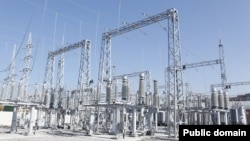The Electric Networks of Armenia (ENA) operator was due to make 48 billion drams ($124 million) worth of capital investments this year in accordance with its plan of activities approved by the Public Services Regulatory Commission (PSRC). The ENA management asked the PSRC for permission to increase the figure to more than 54 billion drams in March, three months before Karapetian was arrested right after denouncing Prime Minister Nikol Pashinian. The extra money would be spent on replacing hundreds of power supply lines.
The nominally independent commission headed by a political ally of Pashinian rejected the proposal earlier this week on the grounds that the network refurbishment would cause more power cuts in and outside Yerevan.
ENA’s acting chief executive, Davit Ghazinian, on Friday dismissed the official explanation for the rebuff, saying that short-term inconvenience caused to consumers would have been offset by a further modernization of the Soviet-era network. Ghazinian did not deny a connection between the PSRC’s decision and the crackdown on Karapetian and his business assets in Armenia.
The 59-year-old billionaire, who has lived in Russia since the 1990s, was arrested in Yerevan and charged with calling for a violent regime change on June 18 hours after condemning Pashinian’s attempts to depose the top clergy of the Armenian Church. He denies the charges.
Pashinian pledged to nationalize ENA later on June 18, saying he wants to end power cuts periodically occurring in various parts of the country. He also accused the company of creating a “near energy crisis” with the possible aim of increasing public discontent with his government.
Pashinian’s critics dismissed those claims, saying that he is simply keen to punish Karapetian for dissent. They also warned that ENA’s seizure would scare away major foreign investors who have already shown little interest in Armenia during Pashinian’s seven-year rule. Karapetian and his family said on June 30 that they will file an international lawsuit against the government if it does seize ENA.
The Armenian parliament controlled by the ruling Civil Contract party ignored these warnings when it hastily approved on July 2 a government bill empowering the authorities to “temporarily” take over ENA’s management before forcing its owner to sell it within three months. Such action will have to be approved by the PSRC.
The regulatory body rejected the proposed additional investment in the Armenian electricity network on Tuesday just as law-enforcement authorities raided the offices of ENA and several other companies owned by Karapetian. Five of their executives were arrested in what the Investigative Committee called a criminal investigation into “large-scale” embezzlement, tax evasion and money laundering. Karapetian’s Tashir Group conglomerate condemned the crackdown as politically motivated.
Tashir, which is headquartered in Moscow, claims to have invested at least $700 million in ENA and sharply cut its losses since buying the utility from a Russian energy giant in 2015. Electricity prices in Armenia have remained the same in the past decade.





